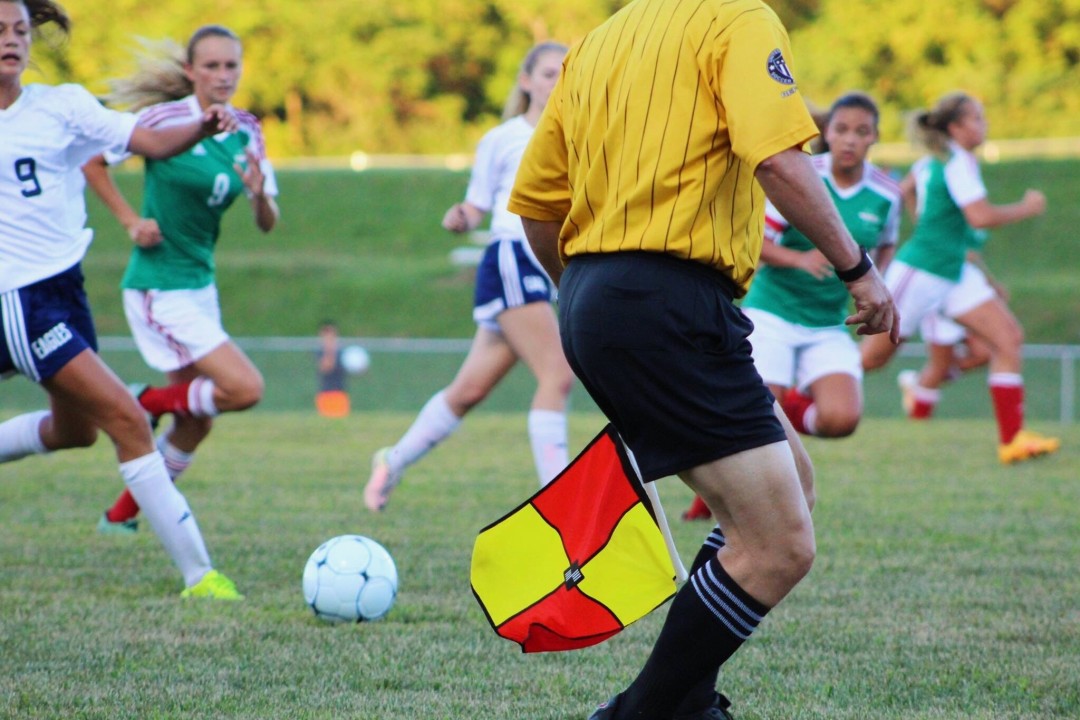Introduction to US Soccer Coaching License
The US Soccer Coaching License is a pivotal credential for individuals seeking to develop their coaching careers in the realm of American soccer. This licensing program is designed to equip coaches with the foundational knowledge and practical skills necessary to guide players effectively and foster a competitive yet supportive environment. As the sport continues to gain popularity across the nation, the importance of quality coaching has never been more pronounced, making the acquisition of a coaching license essential for aspiring and established coaches alike.
Obtaining a US Soccer Coaching License signifies a commitment to professional development and a dedication to enhancing the quality of soccer in the United States. The structured pathway provided by the licensing program enables coaches to learn vital concepts in player development, game strategies, and athletic training methodologies. This comprehensive training not only sharpens a coach’s skills but also significantly improves the performance of the teams they lead, ultimately contributing to the growth of soccer at the grassroots level.
<pmoreover, a=”” across=”” advancement,=”” and=”” as=”” can=”” career=”” catalyst=”” clubs=”” coaches=”” coaching=”” come=”” community,=”” competencies=”” different=”” dividends=”” doors=”” enhanced=”” for=”” formal=”” from=”” growth=”” hiring=”” in=”” investment=”” is=”” leagues=”” leave=”” levels=”” license=”” license.=”” looking=”” mark=”” obtaining=”” of=”” often=”” opening=”” organizations=”” p=”” pays=”” personal=”” play,=”” positions=”” prioritize=”” professional=”” qualifications,=”” recognizing=”” serve=”” soccer=”” success.<poverall, a=”” about=”” an=”” and=”” becoming=”” career.
Types of US Soccer Coaching Licenses

The US Soccer coaching landscape is structured around a tiered licensing system designed to cultivate skilled coaches at various competitive levels. These coaching licenses provide essential frameworks for learning and development, ensuring that coaches are equipped to promote the growth of soccer in the United States. Highlighted below are the main types of US Soccer coaching licenses available, each serving distinct needs and target audiences.
The U.S. Soccer Grassroots License represents the entry level of the coaching pathway. This license is aimed at beginner coaches who may be working with youth teams. It typically requires no prerequisites and provides an introductory overview of coaching principles, lasting approximately 4-6 hours. Ideal for those just starting out, this license offers foundational knowledge necessary for effective coaching.
Progressing up the hierarchy, the U.S. Soccer D License requires completion of the Grassroots License and focuses on developing coaching strategies for youth players, lasting around 30 hours. Candidates should have prior experience coaching or be actively involved in coaching a team to enroll.
The U.S. Soccer C License continues the educational journey for coaches, enhancing their tactical and technical understanding of the game. Prerequisites include the D License and practical coaching experience, typically necessitating a commitment of about 40-60 hours. This license is suited for coaches aiming to work at higher youth levels or lower amateur adult levels.
Further up, the U.S. Soccer B License prepares coaches for managing competitive teams at the youth and amateur adult levels. The B License necessitates possession of the C License and substantial coaching background, encompassing around 60-80 hours of training and assessment.
Finally, the U.S. Soccer A License is the pinnacle qualification, intended for those aspiring to coach elite youth and professional teams. Candidates must complete the B License and possess extensive coaching experience, dedicating approximately 80-100 hours for completion. This comprehensive program equips coaches with advanced skills and knowledge vital for high-level competition.
Choosing the right US Soccer coaching license depends significantly on an individual’s coaching aspirations and experience level. This structured pathway enables coaches to develop progressively, ensuring they are prepared for the challenges ahead.
Benefits of Obtaining a US Soccer Coaching License

Acquiring a US Soccer Coaching License offers a multitude of advantages that significantly enhance a coach’s professional trajectory within the sport. Firstly, obtaining this license elevates a coach’s credibility among players, parents, and peers. The certification demonstrates a solid understanding of coaching principles and practices, assuring stakeholders of the coach’s competence and dedication to soccer development.
Moreover, licensed coaches gain access to exclusive resources provided by US Soccer. These resources encompass a wealth of training materials, coaching tools, and updated methodologies designed to foster player development and success on the field. Having such resources at one’s disposal is essential for any coach aspiring to implement effective training programs and strategies tailored to their team’s needs.
Networking opportunities within the soccer community are yet another significant benefit of obtaining a US Soccer Coaching License. Licensed coaches often find themselves amidst a network of like-minded individuals who share insights, experiences, and knowledge, fostering a collaborative environment. Regular interaction with other coaches and attendance at workshops or events enhances a coach’s ability to learn from others, share best practices, and stay updated on trends in coaching.
Additionally, possessing a US Soccer Coaching License enables coaches to pursue opportunities at higher levels of the game. Whether aspiring to coach competitive youth teams, high school programs, or even collegiate squads, having the appropriate licensure often becomes a prerequisite. Indeed, progressive organizations and clubs frequently prefer or mandate coaches to possess certain levels of certification, making it vital for those looking to advance their careers in soccer.
Ultimately, obtaining a US Soccer Coaching License can serve as a cornerstone for a coach’s advancement, contributing positively to their personal growth and professional reputation in the soccer community.
The Coaching License Curriculum Explained

Obtaining a US Soccer Coaching License involves a comprehensive curriculum designed to equip aspiring coaches with the necessary tools and knowledge to foster player development effectively. The curriculum is structured to address several key areas essential for coaching at any level of soccer.
One of the primary components of the curriculum is player development. This topic delves into the various stages of a player’s growth and the specific coaching strategies that can enhance their abilities. Coaches are taught how to assess player skills, implement age-appropriate drills, and create a positive learning environment. Understanding how players develop both technically and psychologically is crucial for any coach aiming to maximize their athletes’ potential.
Furthermore, tactical understanding forms a significant part of the curriculum. Coaches learn to analyze the game, develop strategies, and implement formations that suit their team’s strengths. This section emphasizes the importance of adapting tactics to different opponents and in-game scenarios, allowing coaches to make informed decisions that can lead to successful outcomes during matches.
Physical conditioning also plays a vital role in the coaching license curriculum. Coaches are educated on how to design training sessions that promote physical fitness and reduce injury risks. A solid understanding of sports science, including nutrition and recovery techniques, is essential for coaches to prepare their athletes physically and mentally for competition.
Finally, effective communication is emphasized throughout the training modules. Coaches are taught various methods to engage with players and staff, fostering a collaborative atmosphere within the team. Strong communication skills enable coaches to convey their ideas efficiently, motivate their players, and build trust, which is key to creating a cohesive team environment.
Overall, the curriculum for the US Soccer Coaching License is meticulously crafted to ensure that coaches are well-equipped to handle the responsibilities of developing players holistically. These foundational topics create a framework for coaches to thrive in the ever-evolving world of soccer.
Steps to Apply for a US Soccer Coaching License

Acquiring a US Soccer Coaching License is a commendable goal for individuals looking to enhance their coaching skills and advance their careers in soccer. The process to obtain this license follows a series of well-defined steps that ensure coaches are adequately prepared to lead players and teams effectively.
First, candidates must assess their eligibility. Typically, the requirement includes being at least 18 years old. Depending on the desired level of coaching, prior experience in soccer, whether as a player or assistant coach, can also be beneficial. Understanding the various levels of coaching licenses, such as the Grassroots and the A coaching licenses, is crucial; each has specific prerequisites and focuses on different aspects of coaching. Familiarizing yourself with these distinctions is the first step in the application process.
Next, interested individuals need to visit the official U.S. Soccer website to access the application forms. Here, they will find detailed information regarding the various coaching courses available, along with the respective fees. The fee structure may vary depending on the course level, and payment must be completed before enrollment in any course. Make sure to keep a record of your transaction for future reference.
Further, it’s critical to prepare the necessary documentation for your application. This may include proof of prior coaching experience, any certifications you may hold, and personal identification. Once all required materials are gathered, applicants can proceed to submit their application along with the appropriate documents, ensuring everything is submitted accurately and promptly.
After submitting the application, prospective coaches will need to complete a coaching course. Courses often comprise theoretical lessons and practical field sessions, providing a comprehensive understanding of soccer coaching principles. During this period, candidates will also be assessed on their knowledge and ability to apply learned concepts.
Completing these steps diligently will pave the way towards obtaining a US Soccer Coaching License, thus unlocking a wealth of opportunities in the realm of soccer coaching.
Training and Assessment Process

The training and assessment process for obtaining a US Soccer coaching license is multifaceted, consisting of various components designed to equip candidates with the necessary skills and knowledge to effectively coach at different levels. This comprehensive approach ensures that aspiring coaches not only understand the tactical and technical aspects of the game but also the principles of player development and sportsmanship.
One of the primary elements of the training process involves practical assessments. During these assessments, candidates demonstrate their coaching abilities in real-time situations, allowing assessors to evaluate their effectiveness on the field. This hands-on experience is crucial, as it helps candidates to implement theoretical knowledge gained from coursework. Practical evaluations may incorporate coaching sessions with players, small-sided games, and other forms of interactive activities to test both foundational skills and innovative strategies.
In addition to practical assessments, online courses play a significant role in the licensing process. These courses provide theoretical knowledge on various coaching concepts, including game tactics, physical conditioning, and psychology of athletes. The convenience and accessibility of online learning allow candidates to study at their own pace while ensuring that they meet the educational requirements for the US Soccer coaching license. Furthermore, the dialogue and collaboration fostered within these courses enhance the learning experience by exposing candidates to diverse viewpoints and coaching philosophies.
Mentorship also constitutes a vital aspect of the assessment process. Each candidate is typically assigned a mentor, who is an experienced coach with a US Soccer coaching license. This relationship encourages professional growth and offers guidance on how to apply learned concepts in various coaching scenarios. Through regular feedback sessions, candidates gain insights into their performance and areas for improvement, ultimately leading to their successful assessment and certification as licensed coaches.
Continuing Education and License Renewal
The journey of a soccer coach does not end with the acquisition of a US Soccer Coaching License; it is merely the beginning of an ongoing learning process. Continuous education is an essential component that ensures coaches remain informed about the latest methodologies, tactics, and advancements in soccer. This commitment to professional development is integral not only for personal growth but also for providing the best possible training experience for players.
To maintain an active coaching license, coaches are required to fulfill specific renewal requirements. Typically, this involves participating in continuing education courses, attending workshops, or engaging in other approved activities that contribute to a coach’s knowledge and skills. The U.S. Soccer Federation emphasizes the importance of these ongoing educational opportunities as they help coaches adapt to the evolving landscape of the sport.
Advancements in sports science, nutrition, and psychology are always emerging, making it crucial for coaches to stay updated with the latest techniques and best practices. In addition to organized courses, many coaches may choose to attend conferences or engage in online learning platforms that focus on innovative coaching strategies. Networking opportunities with fellow professionals during these events can also be invaluable, fostering a community where coaches share knowledge and experiences.
Moreover, some states or leagues may impose additional requirements for license renewal, which can include specific hours of classroom instruction or practical training. Therefore, it is advisable for coaches to keep track of their ongoing education credits and familiarize themselves with renewal deadlines and processes. By proactively engaging in continued education and meeting the renewal criteria for the US Soccer Coaching License, coaches not only enhance their own expertise but also contribute significantly to the development of their teams and the sport as a whole.
Success Stories from Certified Coaches

The journey to becoming a certified coach through the US Soccer Coaching License program has positively impacted many individuals, transforming their careers and deepening their passion for the sport. One notable story comes from Sarah Johnson, who initially volunteered as a youth coach without formal training. After obtaining her US Soccer Coaching License, her approach evolved significantly. She emphasized not only technical skills but also encouraged players to develop a strong tactical understanding of the game. This holistic development allowed her team to excel, securing a spot in the state championships.
Another inspiring account comes from Mark Rodriguez, who transitioned from a professional player to a coach after completing the coaching program. With his US Soccer Coaching License, Mark gained access to advanced coaching methodologies and a network of fellow coaches. This has been instrumental in his ability to refine training sessions and implement strategies that match the evolving dynamics of modern soccer. As a result, his team experienced remarkable growth, going from an average club to a competitive force in their league.
Moreover, Jane Smith’s story exemplifies how a coaching license can help foster community and inclusivity within soccer. After earning her license, Jane initiated a local soccer program aimed at introducing the sport to underprivileged children. She used the insights and skills gained from the coaching courses to create an enriching environment, focusing on both personal growth and teamwork values. This initiative not only helped her community but also enriched her experience as a coach, providing her with even greater motivation to inspire the next generation of soccer players.
These success stories highlight the tremendous impact the US Soccer Coaching License can have on a coach’s career and the communities they serve. They serve as a testament to the transformative power of formal coaching education in nurturing both individual potential and collective achievements in the sport.
Conclusion: Your Journey to Becoming a Licensed Coach
In navigating the realm of coaching, obtaining a US Soccer Coaching License represents both a commitment to excellence and an opportunity for personal and professional growth. The process of acquiring this license not only enhances one’s coaching abilities but also deepens the understanding of the sport, thereby benefiting players and teams alike. This educational journey equips coaches with essential skills, strategies, and the theoretical foundation necessary to foster talent in young athletes.
The significance of the US Soccer Coaching License extends beyond just meeting certification standards; it promotes best practices and a culture of continuous improvement within the game. Coaches who hold this license are better positioned to create inclusive environments, develop effective training programs, and adapt to the diverse needs of their players. The knowledge gained from the license program can inspire aspiring coaches to innovate and refine their approach, resulting in a more successful coaching career.
For those contemplating the pursuit of a coaching license, it is vital to recognize that every expert coach initiates their journey with a single step: the decision to learn and improve. Engaging in the US Soccer Coaching License program is an investment in not only one’s own future but also in the futures of those they coach. As you embark on this path, consider the numerous resources available, including local coaching clinics, online courses, and mentorship opportunities, to support your development. Through dedication and a willingness to adapt and evolve, you can unlock your potential in the world of soccer coaching.







